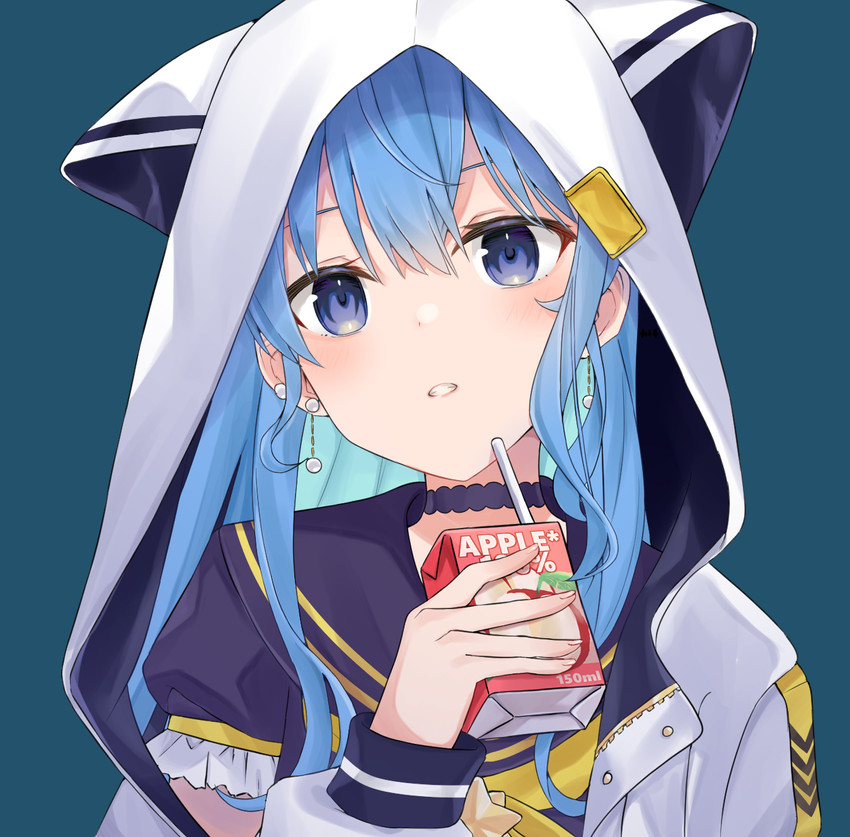I'm not talking about boycotts in general, like say the Montgomery Bus Boycott, because we know those can work. I'm talking about "Company that sells product made me mad" boycotts.
Whether it's past ones like the infamous Call of Duty: Modern Warfare 2/Left 4 Dead 2 boycotts, or more recently like the brewing chud Pride Month boycotts (And if we're being brutally honest here on the flipside: The all-but-in-name boycott of that Harry Potter game a month or 2 ago), all of them seem to universally fail spectacularly and not impede their targets in any way.
There are instances you can point to where they've "worked" but something which should always be kept in mind when discussing them is:
The idea that our role in facilitating change is to be smart consumers and "vote with our wallet" is fundamentally a liberal idea and; the problem with "vote with your wallet" as a guiding principle is it accepts that some people have disproportionate voices in the process.
One of my favorite statistics I like to throw around when people complain about how people keep paying for micro transactions, loot boxes, and dlc in videogames is that the best statistics we actually have access to shows that something like 50-60%+ of the revenue of micro transactions comes from 0.15% of the total user base.
A boycott from the general user base is meaningless here because they aren't paying money to begin with and were never expected to. It's like organizing a yacht boycott. You would need to organize a boycott among the highest paying customers(the industry calls them whales)...and they likely have no incentive to boycott at all.
Also the "company did a thing and I got mad" in the modern era is really a marketing gimmick. These companies know that the primary goal is fighting for media space and getting engagement. Good engagement, negative engagement doesn't matter, as the YouTube algorithm shows. Engagement is engagement. Boycotting from a portion of the potential customer base is also a form of engagement in this framework, and they know it.
TLDR; boycotts can work but they're not the only tool at our disposal, and like "peaceful protest" they are the one that always gets pushed as the best/only option because they accept the liberal framework as a given.
Boycotts work and to make them work you need to effectively organise community and people to realise your power. This is why the Montgomery Bus Boycott worked
Shouting into the twitter/steam forum void does nothing
Most won't succeed, but there's a reason BDS is so targeted. Both in propaganda and in various US laws banning eg state contracts, with people who refuse to sign pledges against BDS.
the boycott of south african products during apartheid did put pressure to end apartheid
Chinese engaged in several very effective boycotts of Japanese products in the 1930s. The Japanese even got so angry they demanded the Chinese government stop the boycotts and attacked if they didn't.
wouldn't call that a success for China. Given the Japanese did attack and millions of people died
The 1937 invasion of China wasn't caused by a boycott, it was caused by the Kwantung Army acting on its own without orders from Tokyo.
I'm obviously talking about things like the boycotts organized after the May Fourth Movement, Jinan Incident, and so on. I mean, duh.
I don't know much about it but I would be surprised if the tensions between the two nations didn't influence the Kwantung army's decision to act. It wasn't just a random event like a lighting strike
Work, as in changing the way the company operates, probably very rarely if ever. However, there is another way of looking at this: action enforces identity. Boycotting seems very good for this purpose because it takes almost no effort from either the boycotter or the organization or movement calling for one. Yet the boycotters end up feeling like they did something for the movement, which makes them identify with it more.
If it's about political controversy then there's also a chance that people will buy the game because of it. IIRC the Modern Warfare makers saw that controversy was a huge PR boost for them.
Second, I don't think the enthusiast communities are nearly as big or influential as they think they are in proportion to the whole consumer base. The next glitchy mess of a rehash game EA shits out and demands $70 + your medical history for (DLC not included) is gonna be an all time best seller in spite of poor customer reviews. PR trumps wallet-voters every time.
Most of the people who don't buy a boycotted product are those who wouldn't have bought it anyway.
I'd say the Bud Lite one appears to be having some impact. But not as much as they want you to think. And it was probably anticipated and weighed long before they ran any ad campaign and it likely to be a net positive in the end.
I think a 30% drop in sales is a lot especially when you consider that a large chunk of their sales is most likely contractual restaurant and event sales.
The bud light one i think it's going to stick also because let's be real. Bud products are disgusting garbage. The reason people drank it was becuase of the branding and pandering to their consumer base.
Bud has effectively forced a third of their consumers into superior brands and they probably aren't going to come back to the garbage that is bud light.
The 30% figure is kinda sketchy, though. From what I can tell, there's only one consulting firm that's pushing that number
Nieksen says 25.4%. And the stock is now down 9-10%.
Like i said a big chunk of their sales is contractual sales. So it's going to take a while to see the full impact.
But miller coors is up a decent amount. Both bad beers but way easier to drink than any bud products.
if workers are on strike and ask for boycotting like all the john deere and frito lay shit a couple years ago that can help, although what probably helps more is other organized labor refusing to ship, stock, or maintain products of companies trying to screw their employees.
During the ufw grape boycott, the consumer boycott was more for spreading public awareness. The real boycott was by the ILWU waiting until the grapes spoiled to move them.
Boycotts only work if they are broad.
You want to boycott Nabisco water? You need to get restaurants and grocery stores on your side and have it be the full range of their products.
The Bud Light “protests” worked becauseit was over a logo not an actual core business system.
Like you could force BP to change their logo much easier than get them to stop drilling for oil.
I’m just anti Activision.
I’ll end up having to be anti Microsoft.
But there is no cool games under capitalism.
Another example of a successful boycott to throw out there in the 1890 tobacco boycott in Persia/Iran. The shah was selling out the country to the British to support his family's extravagent lifestyle, to a ludicrous degree, and he made a deal with the British that would give them a full monopoly on the tobacco industry. The backlash was so severe and widespread, with religious leaders issuing a fatwa against the use of tobacco and even the shah's own concubines participating, that not only did the shah cancel the deal, but it also set an example for Iranian solidarity that contributed to the 1905 revolution, which was unfortunately crushed by foreign powers.
In the modern day, it's difficult to get people to agree on something and actually take action, and to avoid the conversation getting muddled. Lots of people are grillpilled, and the people who aren't grillpilled have brainworms. Americans generally have poor understandings of how actions like boycotts and protests are supposed to effect change, and it gets confused with an expression of personal identity rather than an actual tactic. It's herding cats.
The wizard game disappeared from conversation pretty quickly. The boycott and especially bullying of streamers seemed to work quite well. It was made clear that if you support the game, you support transphobia.
Are you sure? I remember pearl clutching over anyone being attacked for playing the game as well as the game being a massive commercial success.
It disappeared from “the conversation” because it’s a single player game with a single campaign. Variety streamers never stick with those for more than a few weeks.
Hogwarts legacy sold 15 million copies, massively over performing it's target numbers. It's probably the most successful game, single player certainly, that warner bros has ever made. Lol.
And this is the problem with outrage boycotts. Warner Bros doesn't care about transphobia criticism anymore than Disney cares about woke criticism. Engagement is engagement. All they really care about his capturing media space to boost sales.
Nonsense. The game disappeared from conversation because it was mediocre and utterly unremarkable. That boycott was especially useless because it only managed to deter mid-sized streamers that were small enough so that the boycotting crowd could actually affect them, it barely deterred the real big 10k+ view streamers at all.
I don't think my coworkers were aware there was any kind of controversy but they aren't the most online
Boycotts are useful for having conversations and spreading solidarity. Anti-apartheid boycotts are effective because they're really just a way to tell people about how much apartheid sucks. It's an excuse to do tabling, for example.







